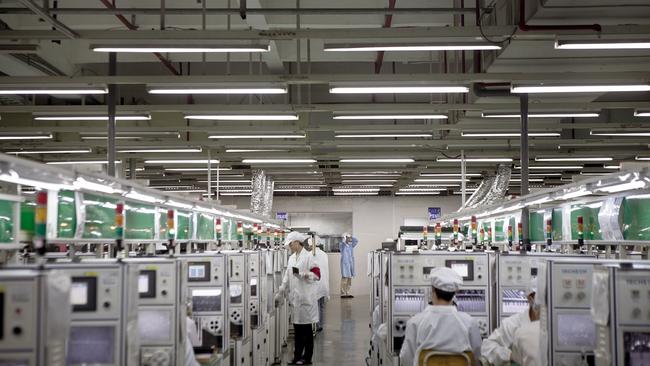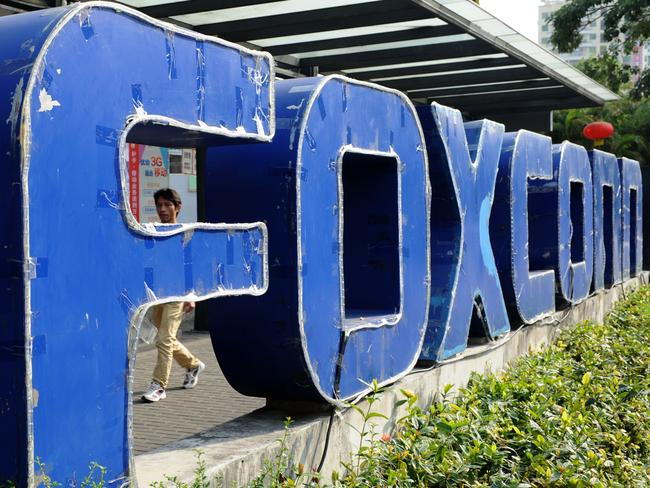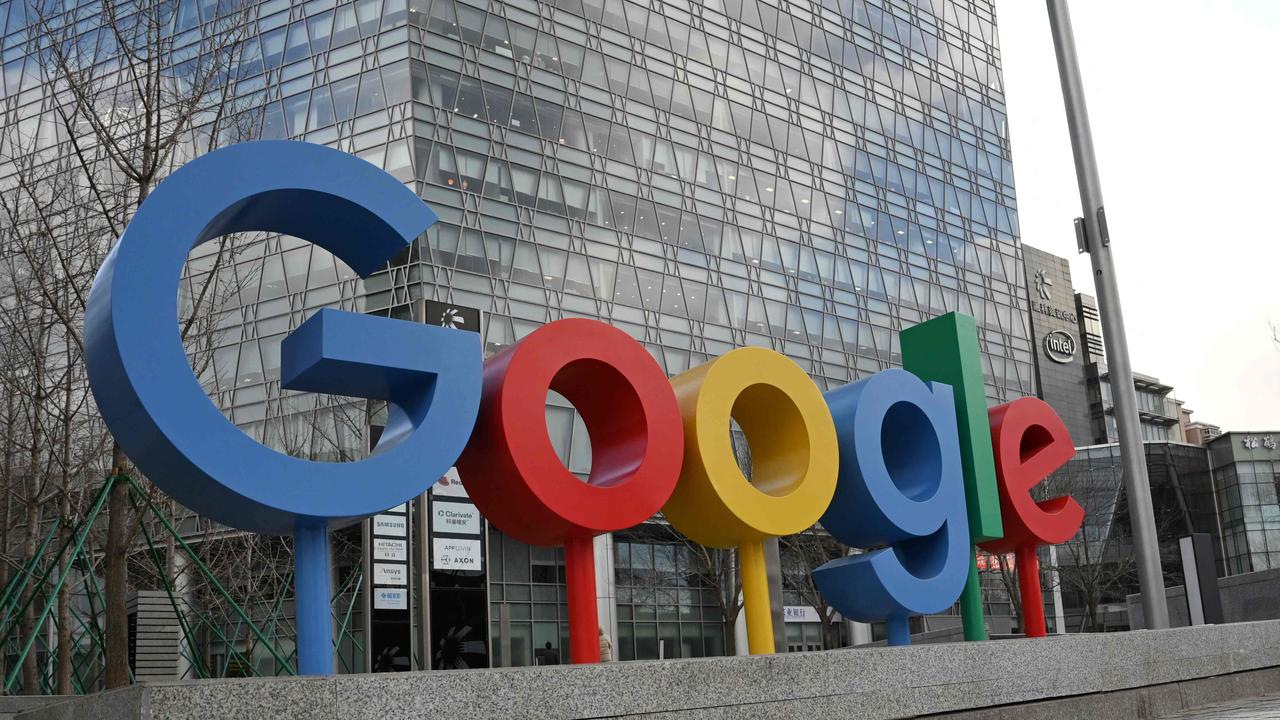Facebook’s latest error shakes advertiser confidence
The company quietly told advertisers earlier this month its ‘conversion lift’ tool overestimated some campaign results.

Hello and welcome to The Download, The Australian’s technology blog for the latest tech news.
4.20pm: Facebook’s latest error shakes advertiser confidence
Facebook is offering millions of dollars in credits to some advertisers after discovering a glitch in a tool that tells advertisers how effective their ads may be in driving results, such as getting consumers to download an app or purchase a product.
Facebook’s “conversion lift” tool overestimated some campaign results for 12 months, the company quietly told its advertisers this month. The glitch skewed data that advertisers use to decide how much money to spend with the company.
It isn’t the first problem Facebook has discovered in its systems to measure advertisers’ campaigns, and it is not likely to dent Facebook’s ad revenue. But some ad buyers said the latest gaffe has hurt confidence in the company’s metrics at a time when many businesses are navigating the pandemic by trying to cut costs and make sure their ad spending performs.
Omnicom Group Inc. media agency OMD Worldwide is looking into how the error has affected some clients’ investments before accepting credits, said Florian Adamski, OMD’s global chief executive.
“This is not an easy fix,” he said. “It’s not like, pay a couple thousand or million bucks and it’s over. This goes a lot deeper and we need to find out how to rectify the damage done and make sure it doesn’t happen again.”
“If there is no governance or third neutral party looking at our investment tools, I can’t sleep well at night and my clients can’t sleep,” he added.
The issue is particularly acute for certain categories such as retail, where marketers are spending as much as 5% to 10% more on Facebook and other performance-centric advertising channels to recover business lost during the early stages of the pandemic, said the chief executive of one digital agency that spends hundred of millions of dollars advertising on Facebook every year.
“Being able to attribute where sales are coming from is hugely important right now,” the executive said. “Every dollar spent has got to map back to data points and performance. If we can’t map that back, it becomes more difficult to justify spending dollars when clients are trying to manage their costs as effectively as possible—and media spend is a cost that needs to generate revenue.”
Facebook’s offer of credits extends to some advertisers that used the tool when the error went undetected, from August 2019 through August 2020.
“While making improvements to our measurement products, we found a technical issue that impacted some conversion lift tests,” said a Facebook spokesperson in an email. “We’ve fixed this and are working with advertisers that have impacted studies.”
At one large buying agency, the size of ad credits will be around 0.5% of affected clients’ annual budgets around the time of the glitch, according to a memo that the agency sent to clients that was obtained by The Wall Street Journal.
“More so than past measurement problems with Facebook’s ad platform, this error has the potential to be extremely serious,” the agency wrote in the note to clients. “The fact that it led to a systematic overstatement of ad performance, combined with the yearlong duration of the error, likely misinformed media budget allocations. These misallocations came at the expense of both advertiser media efficiency and Facebook’s competitors.”
Facebook, which said it fixed the error in September, told advertisers about it this month, according to a memo that Facebook sent clients. The company is basing the amount of credits it is issuing to advertisers on an analysis that shows how much the error may have affected their actual investments during the period following the lift study.
Some ad buyers are also questioning the analysis Facebook is using to determine advertisers’ compensation—criticizing the tech giant for not being transparent enough in how it determined who receives ad credits and how, exactly, compensation was calculated, as well as details on steps Facebook is taking to ensure such errors don’t occur again.
“This can’t just be covered with a one-time compensation in credits,” said OMD’s Mr. Adamski. “It needs that reconciliation for every single client on how did it influence the investment decisions we made.”
Marketers aren’t likely to turn away from Facebook despite the incident, said Kevin Simonson, vice president of social for digital marketing agency Wpromote LLC, which spends more than $100 million a year on Facebook ads on behalf of clients.
“This particular error would impact strategy regarding what creative to use and what audiences to spend against, which could be significant to some extent, but it’s not going to be significant to a degree that’s going to cause any brand (in this day and age) to not do Facebook,” Mr. Simonson said in an email. “It’s more like to what degree.”
News of the glitch was reported last week by industry publication AdExchanger.
Write to Alexandra Bruell at alexandra.bruell@wsj.com and Sahil Patel at sahil.patel@wsj.com
Wall Street Journal
Chris Griffith 9.15am: Foxconn moves some Apple production from China to Vietnam
Foxconn is moving some Apple production of iPads and MacBook out of China to minimise risk, Reuters reports.
The wire service quotes a source claiming the move was being made at the request of Apple. With the US (and Australia) experiencing deteriorating trade relations with China, some tech companies have already been moving production away from mainland China.

The other aspect of this is the deteriorating relationship between China and Taiwan – the stand-off over Taiwan’s independence and China’s claim over the territory is seen as a flash point for potential war.
In the technology world, Asus, Acer, D-Link, Synology, HTC, BenQ, QNAP and Gigabyte Technologies, and components manufacturer TSMC as well as Foxconn all are from this island of about 23.6 million people — fewer than Australia.
China has provided a cheaper labour source for the manufacture of technology created by Taiwanese companies, as it has for companies around the world, but this could be changing.
Last year we reported that Acer chief executive Jason Chen was pondering moving its manufacturing away from mainland China.
Reuters reports a source claiming that Foxconn is building assembly lines in Vietnam’s northeastern Bac Giang province, to come online in the first half of 2021.
Vietnamese newspaper VN Express International last year reported that Foxconn has been looking at setting up a $US40m TV screen production plant in Quang Ninh province in northern Vietnam. There is speculation that Sony TV’s could be moved to there.
Vietnam, along with India, seem the most likely destinations for these new factories if the trickle of production lines away from China continues. Foxconn has enjoyed a long presence in Vietnam already – from 2007.
9.00am: EU looks to rein in extremism in video games
Online video games can be used to propagate extremist ideologies and even prepare attacks, the EU’s anti-terrorist co-ordinator told AFP in an interview in which he urged more regulation.
The official, Gilles de Kerchove, made the argument ahead of the European Commission’s presentation on December 9 of a proposed Digital Services Act that aims to rein in Big Tech excesses and internet hate speech.
“I’m not saying that all the gaming sector is a problem. There are two billion people playing online, and that’s all very well,” said de Kerchove, a Belgian appointed to his post 13 years ago.
But, he warned, “you have extreme-right groups in Germany that have come up with games where the aim is to shoot Arabs, or (Hungarian-born US billionaire George) Soros, or Mrs (German Chancellor Angela) Merkel for her migration policy, etc.”
“That can be an alternative way to spread ideology, especially of the extreme right but not only them, a way to launder money … there are currencies created in games that can be exchanged for legal tender,” he said.
“It can be a form of communicating. It’s encrypted. It can also be a way to test attack scenarios,” he continued.
De Kerchove also raised concerns over “algorithmic amplification”, where platforms such as Facebook and YouTube put “problematic” and “borderline” content up high, exploiting emotional reactions to boost user engagement.
This is one aspect the EU executive wants to tackle in its Digital Services Act by demanding more transparency from digital titans. The European parliament is also discussing a proposal which would require content deemed to have a terrorist character deleted online within one hour.
The fight against terrorism has shot up the EU agenda since recent jihadist attacks in France and Austria.
Another concern, a controversial one, is a push by law enforcement in EU countries to have encrypted communications, of the sort offered by WhatsApp, readable by authorities with a warrant.
But that has run up against unease by defenders of free speech and civil liberties and privacy advocates, who fear abuse and a backdoor that can be used by hackers and criminals, as well as authoritarian administrations.
On that, de Kerchove offered reassurance. “Nobody in Brussels wants to reduce encryption,” he said. “On the contrary, we are in favour of more encryption.” But, he added, “is it right that we aren’t able to identify who is behind an IP address and posting paedophile photos from the rape of children?
How is it police can tap an SMS but they can’t access the same content in a WhatsApp message? Is that logical?” He suggested the Digital Services Act include a provision forcing providers of encrypted communication to give police and prosecutors unencrypted versions of the messages sent on their services when ordered to do so by a judge.
AFP



To join the conversation, please log in. Don't have an account? Register
Join the conversation, you are commenting as Logout